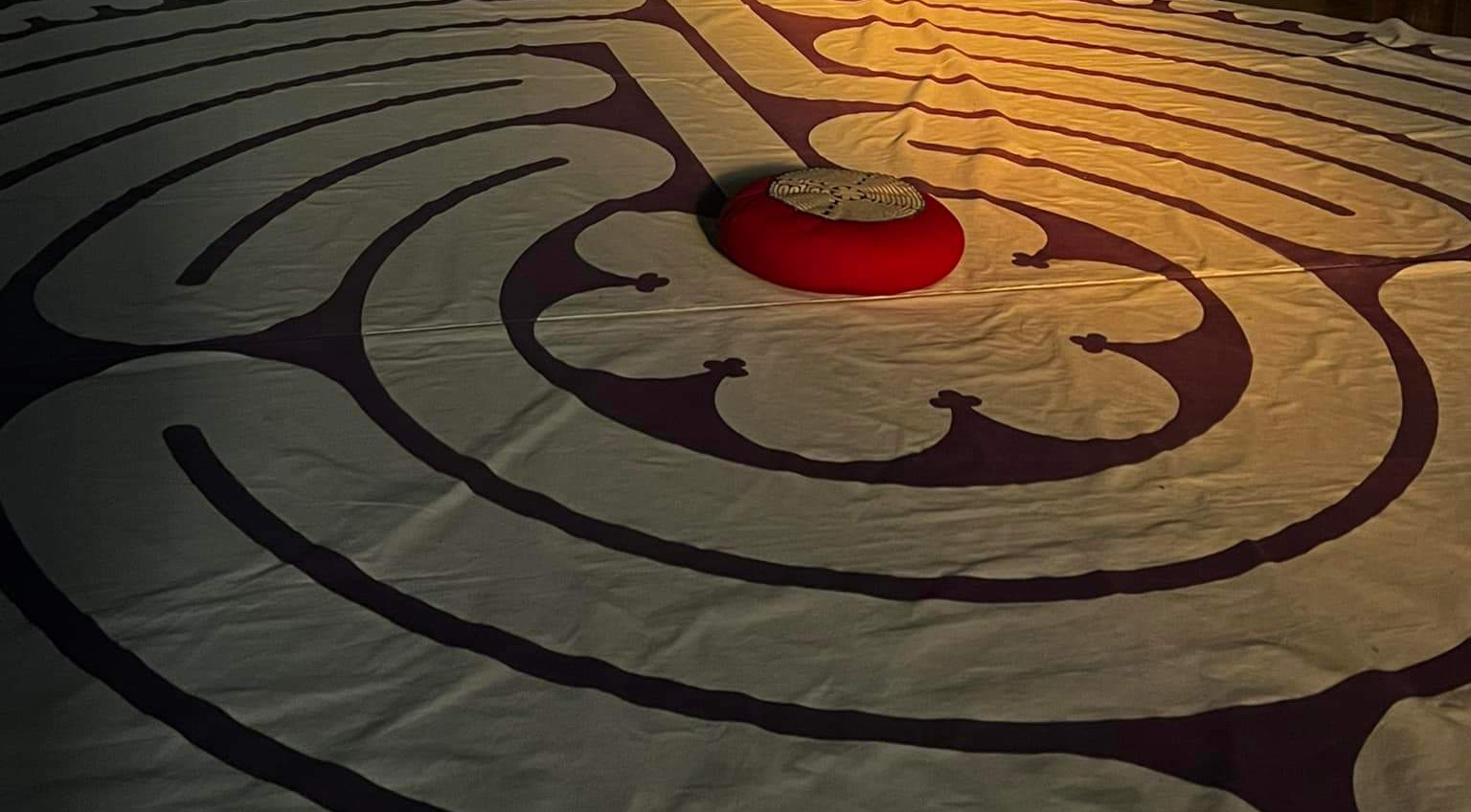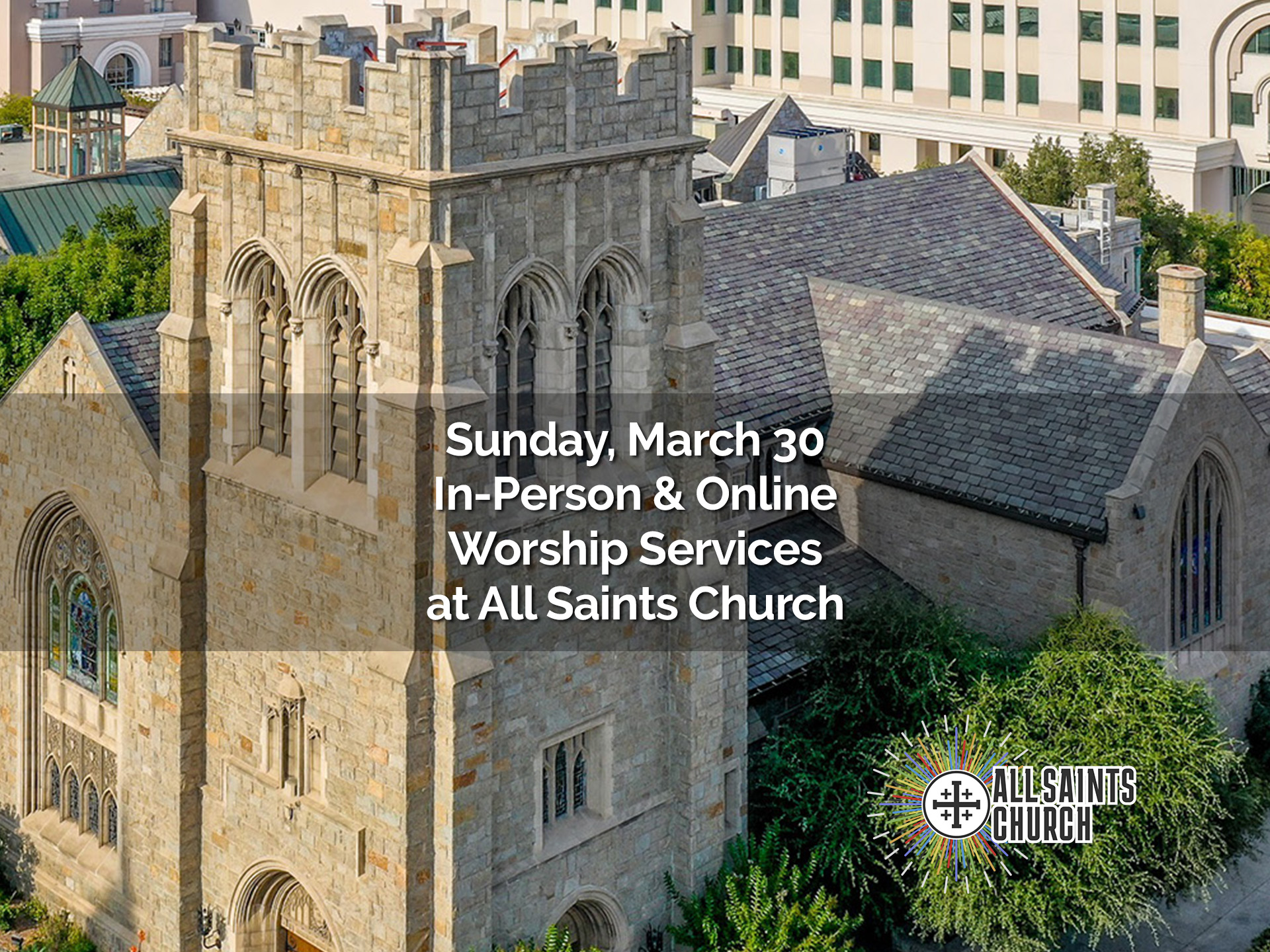The Gospel isn’t meant to be gulped down on Sunday morning, but gnawed on through the week so it really becomes a part of us. You’ve got to work at it, like a dog with a good bone! Here’s the Gospel for this coming Sunday — the Third Sunday of Easter — with food for thought on the question: “Who is this Jesus?” Gnaw away!
Luke 24:36b-48
While the disciples were telling how they had seen Jesus risen from the dead, Jesus actually stood in their midst and said to them, “Peace be with you.” In their panic and fright, they thought they were seeing a ghost. Jesus said to them, “Why are you disturbed? Why do such ideas cross your mind? Look at my hands and my feet; it is I, really. Touch me and see — a ghost doesn’t have flesh and bones as I do.” After saying this, Jesus showed them the wounds.
They were still incredulous for sheer joy and wonder, so Jesus said to them, “Do you have anything here to eat?” After being given a piece of cooked fish, the savior ate in their presence.
Then Jesus said to them, “Remember the words I spoke when I was still with you: everything written about me in the Law of Moses and the Prophets and the psalms had to be fulfilled.”
Then Jesus opened their minds to the understanding of the scriptures, saying, “That is why the scriptures say that the Messiah must suffer and rise from the dead on the third day. In the Messiah’s name, repentance for the forgiveness of sins will be preached to all nations, beginning at Jerusalem. You are witnesses of all this.”
The Backstory – What’s Going On Here?
This is the third revelation of the resurrected Christ in Luke — the three make up this entire concluding chapter of the Gospel. The first revelation is at the empty tomb on Easter morning. “Two figures in dazzling garments” stood in the tomb and reminded Mary Magdalene, Joanna, Mary the mother of James and the other women that Jesus had predicted his death and resurrection. But when the women tried to tell the other male apostles this, they were rebuffed as speaking nonsense.
The second revelation — the same day — happens when two disciples are traveling on the road to Emmaus. Jesus appears as a fellow traveler and “interpreted to them in all the scriptures the things concerning himself” … only they don’t recognize Jesus until he breaks bread with them and vanishes from their sight.
They then rush back that same hour to Jerusalem (it’s still Easter!) where they meet the rest of the eleven gathered and this story takes place.
In each story, the evidence that Christ is indeed risen mounts. At the empty tomb, it is the absence of the body and the memory of Jesus’ words. On the road to Emmaus, it is the scriptures being opened up to them and them actually seeing Jesus in the breaking of the bread. Here, in the climax, Jesus does each of the preceding two things (reminds him of his passion prediction and “opened their minds to understand the scriptures”) but he also gives bodily proof — not just showing and letting them touch his wounds but eating a piece of fish to show that he is not a ghost.
A few things to chew on:
*” You are witnesses of all this.” – When Jesus tells his disciples that they are “witnesses” to the fact that “the Messiah is to suffer and to rise from the dead on the third day, and that repentance and forgiveness of sins is to be proclaimed in his name to all nations, beginning from Jerusalem,” he is saying an incredible thing. The word Luke uses is the Greek martus, from which the word martyr is derived. This is not just “I have seen it” or even “I have seen it and will talk about it.” This is a call to base and stake their entire lives on this truth they have now seen and touched. The disciples … and we who stand in their shoes … are now the living Body of Christ, basing their whole life together on God’s love for the world and willing to give their life as well.
*”Repentance and forgiveness of sins is to be proclaimed in his name to all nations.” – One of the major themes of Luke is that the love of God in Jesus is not just for the Jews but for the whole world. It is more than any other a Gospel for the Gentiles … a Gospel for us. But what is this message. “Repentance and forgiveness” is more accurately translated “Transformation for Freedom.” The message, challenge and opportunity that is being extended to the ends of the earth is to have our lives transformed by love so that we can be free … so that we can be fully alive in ways we have never dreamed about. It is the best possible news … and it is ready for the listening and living for everyone.
Try This:
Ever since Easter morning, people have tried to explain away the resurrection with so-called “rational arguments” … saying, in essence” this is too good to be true.”
But the whole basis for the Church is that the risen Christ is So Good and So True.
This week, take just a few minutes at the beginning of each day and just consider the depth of God’s love for you in Christ. That no matter what you accomplish (or don’t accomplish) today, that love will never go away. That in that love is an invitation to live a life without fear and to love without worry.
For just a few minutes, let go of every voice that says “that’s too good to be true” and instead let yourself be reminded that it is “So Good and So True.”
Who is this Jesus?
A few years ago, I had the chance to sit with a group of St. Louis-area clergy listening to one of the pillars of the anti-Apartheid movement, Allan Boesak, talk about what was going on in Ferguson/St. Louis in light of what they went through … and still are … in South Africa.
He did not mince words when talking about the role of the church. He challenged us, black and white clergy around that table:
“Will we be the church of the establishment, the church of the slave owner … or the church of the struggle?”
“What you are preaching on Sunday morning — if you are even there with your preaching — you need to be living it on Monday. Can we set aside centuries of irrelevant preaching and wordsmithing resolutions and say to the people ‘we are with you and we will be there.’?”
“The worth of your office (as clergy) will be judged by your commitment to justice, by your willingness to preach about a Jesus not just who loves butwho changes systems.”
The Jesus that Allan was challenging us as clergy to follow — and to lead our congregations in following — was the Jesus who spoke to the disciples in this Sunday’s Gospel.
Who is this Jesus?
It is a Jesus who tells us that we are — body and soul — witnesses to a life of giving ourselves up in love for the life of the world.
A Jesus who tells us that we are to be about … as I said in the “things to chew on” … transformation for freedom.
Western Christianity has turned the Gospel into a mirror of our own secular values — personal security (here and in the hereafter) prime among them. But the Jesus who died and rose again, the Jesus who preached repentance and forgiveness of sins, the Jesus who called his disciples to be about transformation for freedom, didn’t care about personal security.
The real Jesus is the Jesus of whom St. Paul said:
I regard everything as loss because of the surpassing value of knowing Jesus Christ my Lord. For his sake, I have suffered the loss of all things, and I regard them as rubbish, in order that I may gain Christ. (Philippians3:8)
Who is this Jesus? The Jesus the disciples met and had fish with, the Jesus that Allan Boesak preached in South Africa and in St. Louis, is a Jesus who wants us to do nothing less than take the systems that oppress and transform them into systems that free.
And that will require lots of repentance before we get to forgiveness. It will require lots of truth before we get to reconciliation. And it will require the church to be on the un-respectable end of a struggle that the respectable world will castigate us for. And in fact, much like those
early martus/witnesses, it is through the world’s castigation we will know our discipleship is pure.
The Jesus who called the disciples, the Jesus who calls us is a Jesus who bids us to go forth and die, to risk all for his sake, and to do it knowing that there is no greater glory, purpose or joy to our lives than this.
. . . . . . . . . . . . . . . . . . . . . .
Check out the rest of Sunday’s readings
The Lectionary Page has all of the readings for this Sunday and every Sunday.
Collect for Sunday
Pray this throughout the week as you gnaw on this Gospel: O God, whose Beloved made himself known to his disciples in the breaking of bread: Open the eyes of our faith, that we may behold him in all his redeeming work; who lives and reigns with you, in the unity of the Holy Spirit, one God, now and for ever. Amen.
Want to read more?
“The Text This Week” is an excellent online resource for anyone who wants to dive more deeply into the scriptures for the week.
Gnaw on This is a weekly publication of All Saints Church written by All Saints’ rector Mike Kinman.



